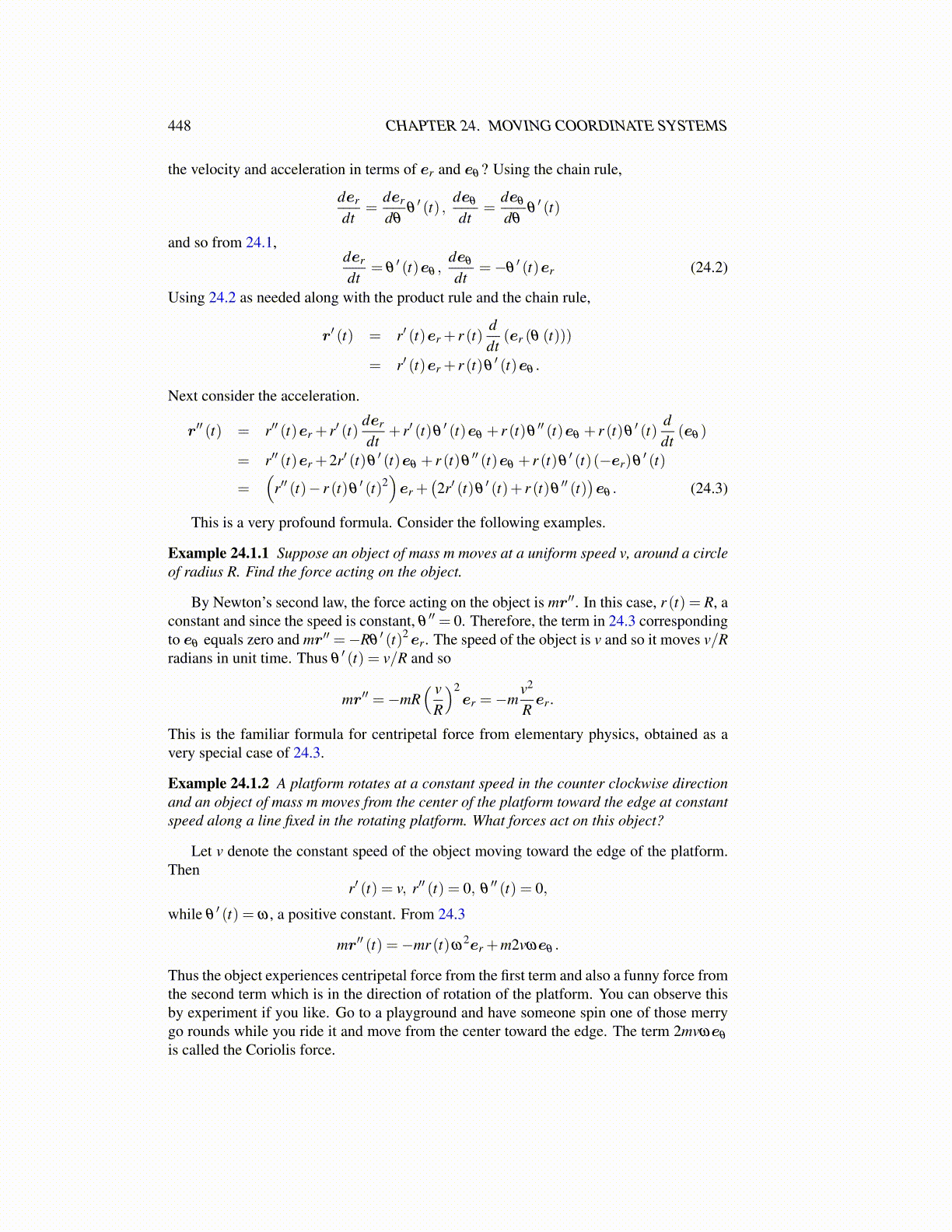
448 CHAPTER 24. MOVING COORDINATE SYSTEMS
the velocity and acceleration in terms of er and eθ ? Using the chain rule,
der
dt=
der
dθθ′ (t) ,
deθ
dt=
deθ
dθθ′ (t)
and so from 24.1,der
dt= θ
′ (t)eθ ,deθ
dt=−θ
′ (t)er (24.2)
Using 24.2 as needed along with the product rule and the chain rule,
r′ (t) = r′ (t)er + r (t)ddt
(er (θ (t)))
= r′ (t)er + r (t)θ′ (t)eθ .
Next consider the acceleration.
r′′ (t) = r′′ (t)er + r′ (t)der
dt+ r′ (t)θ
′ (t)eθ + r (t)θ′′ (t)eθ + r (t)θ
′ (t)ddt
(eθ )
= r′′ (t)er +2r′ (t)θ′ (t)eθ + r (t)θ
′′ (t)eθ + r (t)θ′ (t)(−er)θ
′ (t)
=(
r′′ (t)− r (t)θ′ (t)2
)er +
(2r′ (t)θ
′ (t)+ r (t)θ′′ (t)
)eθ . (24.3)
This is a very profound formula. Consider the following examples.
Example 24.1.1 Suppose an object of mass m moves at a uniform speed v, around a circleof radius R. Find the force acting on the object.
By Newton’s second law, the force acting on the object is mr′′. In this case, r (t) = R, aconstant and since the speed is constant, θ
′′ = 0. Therefore, the term in 24.3 correspondingto eθ equals zero and mr′′ =−Rθ
′ (t)2er. The speed of the object is v and so it moves v/Rradians in unit time. Thus θ
′ (t) = v/R and so
mr′′ =−mR( v
R
)2er =−m
v2
Rer.
This is the familiar formula for centripetal force from elementary physics, obtained as avery special case of 24.3.
Example 24.1.2 A platform rotates at a constant speed in the counter clockwise directionand an object of mass m moves from the center of the platform toward the edge at constantspeed along a line fixed in the rotating platform. What forces act on this object?
Let v denote the constant speed of the object moving toward the edge of the platform.Then
r′ (t) = v, r′′ (t) = 0, θ′′ (t) = 0,
while θ′ (t) = ω , a positive constant. From 24.3
mr′′ (t) =−mr (t)ω2er +m2vωeθ .
Thus the object experiences centripetal force from the first term and also a funny force fromthe second term which is in the direction of rotation of the platform. You can observe thisby experiment if you like. Go to a playground and have someone spin one of those merrygo rounds while you ride it and move from the center toward the edge. The term 2mvωeθ
is called the Coriolis force.